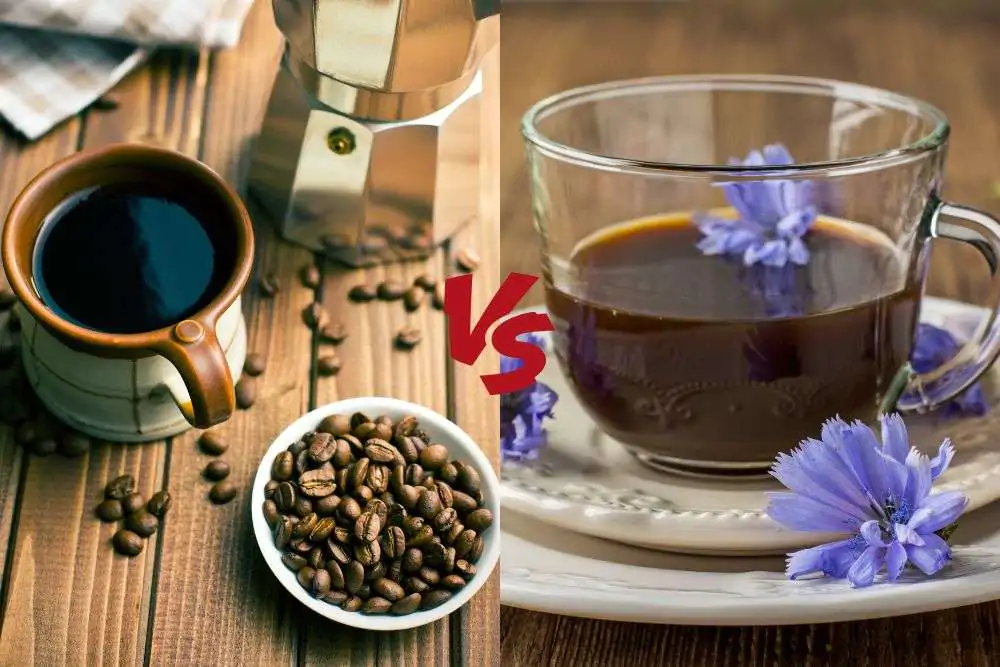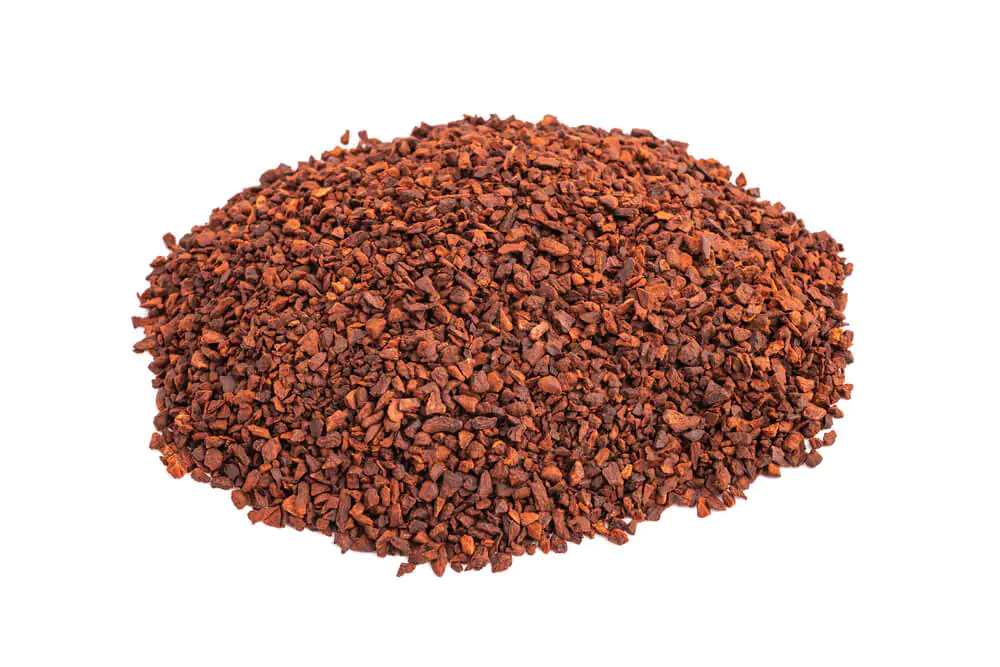Chicory offers the flavor of a hot beverage without caffeine. This article will explore the choice of coffee vs. chicory and which brew is right for you.

Chicory has been blended into coffee and used as a replacement for coffee for almost as long as the world has known about both. The roasted root comes from the same family as endive and radicchio and provides a toasty, roasty flavor similar to coffee without caffeine.
When it comes to making hot beverage choices, I tend to like to experiment and try everything. To find out if coffee or chicory is the right option for you, it’s important to understand what makes the two drinks similar, and what makes them different.
Chicory Vs. Coffee
Chicory, also known as root chicory, is one of a whole family of different plants, including radicchio and endive. The plant is used in a lot of different areas, but one of its favorite uses is as a coffee replacement. The plant roots are baked, roasted, and ground, and when brewed like coffee, they make a replacement that has a very similar flavor but none of the caffeine.
Coffee is the roasted ground seeds of the coffee cherry, brewed into a caffeine-infused beverage. The beverage has been popular worldwide for centuries, and the coffee industry spans the global tropics, from South America to New Guinea to Africa and the Middle East.
The earliest recorded use of coffee dates back to the 15th century, with various African cultures enjoying the brewed beans; while it was probably consumed earlier, there’s no hard evidence as yet.
What Do Coffee and Chicory Have in Common?

Coffee and chicory served hot are processed and brewed in similar ways. The two products are both roasted and ground before brewing with hot water. Both can be brewed using cold water over a long period, but hot brewing tends to be more popular.
They also have very similar flavors due to the components and the roasting process. The two drinks have been described as having a chocolate-like flavor, sharp, bitter notes, and deeper flavors associated with roasting.
Coffee vs. Chicory: What’s The Difference?
The primary difference between the two brews is that coffee has caffeine, while chicory does not. Chicory brews also have a slightly thicker consistency than coffee due to the starches and fiber in the roots that make it up. Some chicory fans also say it has a more cinnamon-like or spicy taste than coffee, although the basic flavor notes are similar.
What’s Better About Coffee?
Coffee tends to be easier to find in regular stores than chicory, and depending on where you live can be cheaper to purchase. In areas of the country or world where chicory is more popular, you’re more likely to find it in the average grocery store, but otherwise, you’ll find it in health food stores or online.
In addition, coffee has caffeine while chicory does not; for those who want the caffeine buzz, coffee is the better choice.
What’s Better About Chicory?
Chicory is often marketed as a healthier alternative to coffee due to a few factors. The lack of caffeine is a major selling point for people whose health conditions may make consuming caffeine dangerous.
It also has some plant compounds that may be beneficial to health, though coffee has its phenols as well. Chicory is a better option for someone who wants the flavor without the buzz or wants to stretch out their coffee supply.
Who Should Choose Coffee?
If you like espresso drinks and appreciate the jolt and jitter of caffeine, coffee is the clear choice for you. Coffee is easier to find and cheaper to purchase in most of the world, and you can more readily find the exact roast (or roasts) that appeals to you. Those who want stimulation with their flavor and a slightly more flexible beverage should opt for coffee.
Who Should Choose Chicory?

If you have concerns about heart health or blood pressure, chicory is a better option. Some studies suggest that some compounds in chicory may help mediate blood pressure, though the evidence isn’t conclusive. If you don’t like the feeling of having caffeine in your system, chicory is the better choice, since it doesn’t have any caffeine in it at all.
If you’re looking for flavor without the buzz, chicory is the choice for you.
FAQs About Coffee Vs. Chicory
Why is chicory bad for you?
Some people may experience an allergic reaction to chicory, resulting in symptoms like mouth discomfort, inflammation, and itching. In addition, to minimize potential adverse effects, people with allergies to ragweed or birch pollen should avoid chicory.
Why is chicory mixed with coffee?
Because it improves the aroma and taste of coffee and makes it mellower, chicory is widely used as a caffeine-free beverage by itself or in combination with ground-roasted coffee. It is also less expensive and is exceptionally soluble which decreases the amount of caffeine consumed when combined.
What is the best chicory coffee?
The strong and flavorful Chicory Coffee from Cafe Du Monde is a popular chicory coffee. It comes in a covered, conveniently openable can and is incredibly easy to make and serve.
What are the benefits of chicory coffee?
If you are trying to cut back on your caffeine intake, chicory coffee can be a good alternative to coffee. Additionally, it could promote digestive health, lower blood sugar, reduce inflammation, and contain different nutrients, including manganese and vitamin B6.
